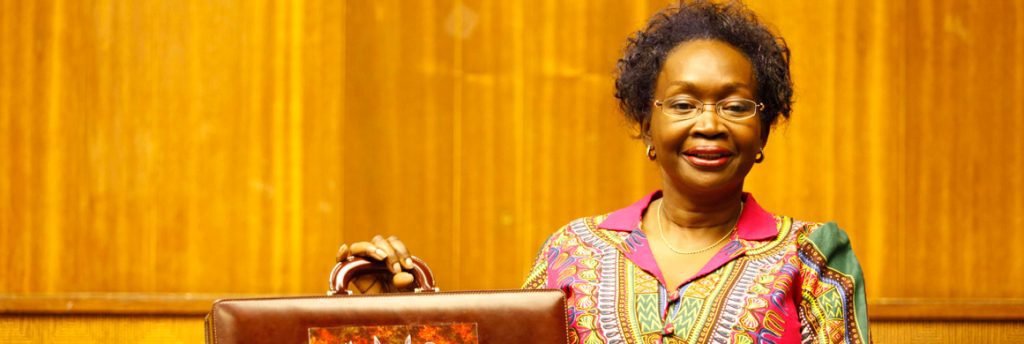There have been plenty of well-known, impressive and important people to graduate from the prestigious London Business School. I’m talking about folks like Timothy Kopra (a NASA Astronaut), Jean Tirole (Winner of the 2014 Nobel Prize in Economics), Ronald Boire (Former President and CEO of Brookstone) — even real-life Knights, such as Sir David Arculus (Chairman of the Board, O2) and Sir John Egan (Former CEO of Jaguar Cars, Former CEO of BAA, Chairman of Severn Trent plc).
In addition to those who have traveled through space, solved problems in global economic and run major companies, London Business School has produced more than a few politicians.
One of the most accomplished politicos of the lot is Maria Kiwanuka, a Ugandan economist and businesswoman who served as Minister of Finance in the Cabinet of Uganda from May 27, 2011 to March 1, 2015.
Since 2015 she has been Senior Advisor to the President of Uganda on financial matters, responsible for the Bretton Woods Institutions.
Kiwanuka was born in Kampala, the capital of Uganda on May 12, 1955. In her early years, she attended Gayaza High School, an all-girls boarding school covering grades 8 -13 and the oldest girls’ school in the country.
After graduating from high school, she entered Makerere University, Uganda’s oldest university, in 1974 and graduated in 1977 with the degree of Bachelor of Commerce (BCom). Kiwanuka continued her education at the London Business School, graduating with her MBA.
Kiwanuka’s impressive business and political career began around 1980 when she started working for the World Bank, an international financial institution that provides loans to developing countries for various programs and is a component of the World Bank Group, which is part of the United Nations system. There, she worked as an economist and financial analyst for the East Asian and Southern African countries, overseeing projects in places like Burma, Malawi, Swaziland and her native Uganda.
Kiwanuka left the World Bank in the mid 90s, at which point she entered the private sector business world. One of her biggest accomplishments was helping launch Radio One and Radio Two, two of Uganda’s biggest and most politically charged radio stations, where she stood as Managing Director.
Uganda’s FM airwaves only had three radio stations, Radio Sanyu, Capital FM and CBS FM, and all were run by men. Once Kiwanuka returned to Uganda following her time at the World Bank with the intention of starting a new station, she researched strategies to develop a new niche market. An Observer article states:
First, more than 70% of the cars on the Ugandan market were Japanese made, which means that their FM radios stopped at 90FM. Two, listeners loved to listen to music from the 70s and 80s because it brought back wonderful memories of times past; and thirdly, listeners loved a radio they could talk back to.
With those facts in the bag, she set about securing a licence and getting modern equipment in place. And once her husband Mohan Kiwanuka acquired the station’s premises at plot 32 Kampala Road, Maria was ready to roll. And she was relentless in her pursuit of quality.
The technicians that set up the machines were flown in from the United States. Another South African couple came in to do the wood paneling at the offices. A South African broadcaster, Tony Sanderson, came in to train the presenters, who were to be headed by a Scottish FM presenter, Neil Mcleod.
The staff, many of whom were drawn from other radio stations, went through three months of off-air training before the station finally opened its doors to the public on September 11, 1997. And there was something different about Radio One. For instance, Radio One was the first station to play its music off computer, unlike the rest of the market that played it off CDs.
That attention to detail has made Radio One and later Akaboozi ku Bbiri (Radio Two) one of the main players in a now crowded market. Many staff, past and present, have nothing but praise for her work ethic.
Kiwanuka would later go on to serve as Minister of Finance in the Cabinet of Uganda from May 27, 2011 to March 1, 2015, placing her in charge of the country’s government finances, economic policy and financial regulation. Following a cabinet reshuffle in 2015, she was dropped from Cabinet and appointed Senior Financial Advisor to the President. She has since been Senior Advisor to the President of Uganda on financial matters, responsible for the Bretton Woods Institutions.
Kiwanuka has also maintained positions as a board member at the Uganda Development Bank; a non-executive director at Stanbic Bank; a member of the Presidential Economic Commission and the Presidential Investors Roundtable.
A list on The Promota Africa named Kiwanuka as one of the Top 10 most powerful women in Africa.

